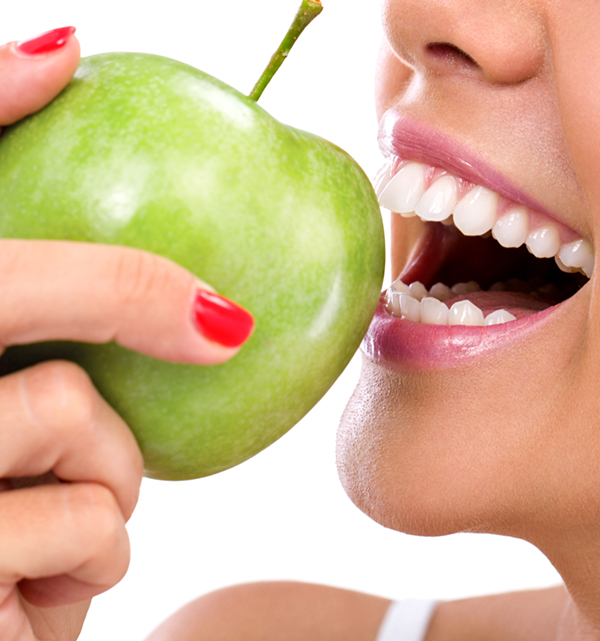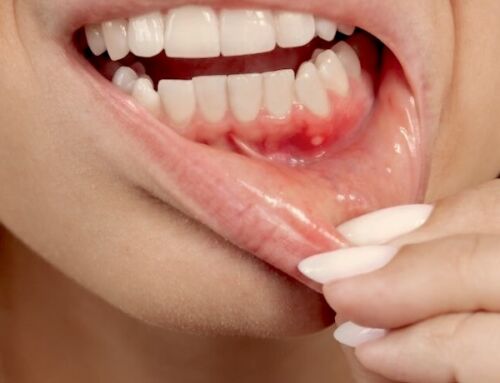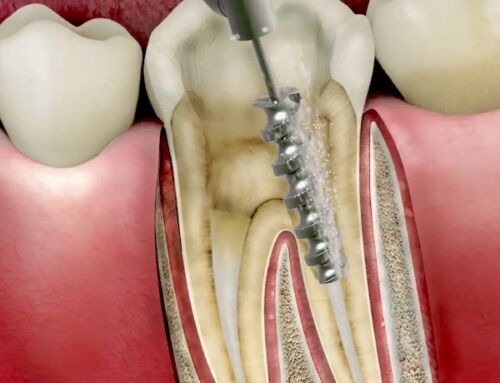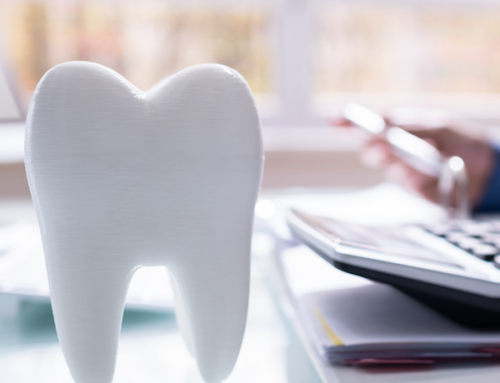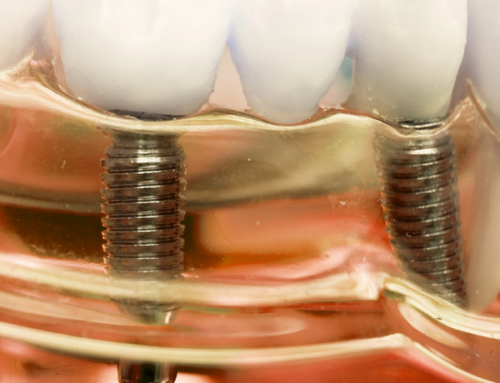Diet plays a crucial role in the oral health. With a healthy and balanced diet, especially if rich in Vitamin D, we can expect stronger teeth. This is because Vitamin D helps with enhancing enamel strength. Enamel makes up most of the tooth’s structure and is the hardest substance in the human body.
However, the food you eat can also contribute to poor oral health. Sugars and starches are what you have to watch out for as they are the primary food source of the naturally occurring bacteria found in the mouth. As bacteria feeds and grows, it releases acids that attack the tooth to cause tooth decay and cavities.
What is tooth decay?
Tooth decay is damage to the tooth due to the acids that break down the tooth surface or the enamel. If left untreated, decay and bacteria will continue to spread to the other layers of the tooth to cause sensitivity or pain. It will also weaken the tooth and may develop into a cavity or a hole in the tooth.
In its early stages, tooth decay can be a white spot on the tooth surface. This is when enamel demineralizes due to bacteria, sugars, and saliva. White spot lesions are still reversible with proper hygiene and care.
But if the decay process continues, this discolouration will turn brown or black. At this point, the enamel is already permanently damaged. To prevent further loss of tooth structure, decay should be removed and the tooth should be restored with dental fillings. However, if there is extensive decay or cavity, a root canal or extraction may be considered.
How does food cause tooth decay?
Tooth decay happens due to the triad of bacteria, diet, and a susceptible tooth. Bacteria are present in the mouth at normal levels. Some bacteria are helpful. But some can be harmful and can play a role in increasing your risk of tooth decay.
If the food we intake is rich in sugars and starch, bacteria will feed on these and will help them grow quickly in number. This bacteria will combine with food particles and saliva to form sticky plaque that attaches to the tooth surface. Bacteria in plaque use the food you eat to make acids that eat away the tooth enamel. Eventually, the enamel will rot away and decay.
Tooth decay is irreversible and can only be treated if all decay and bacteria are removed and the tooth is restored to optimal health. Good oral health and a proper diet should also be maintained to lessen your risk of cavities.
What foods cause decay?
Here are some of the worst foods for your teeth as they make you more prone to decay:
- Sweets, chocolates
- Jams
- Sugary cereals and cereal bars
- Bread
- Rice and other alternatives
- Acidic or citrusy fruits (lemons, limes, oranges, grapefruits)
- Sour candies
- Alcohol
- Carbonated drinks (soda)
- Vinegar
- Potato chips, fries
- Pasta
- Dried fruits
- Sauces and syrups (marinades, ketchup)
Most of these are rich in sugars and starches which are the main enemies of your teeth. So we want to limit their consumption. While some of them may be rich in essential vitamins, such as citrusy foods, they should be consciously consumed to avoid the increase in acids in the mouth that erode the tooth enamel.
What to do to prevent tooth decay?
After we have discussed what not to do and what to eat, let us now discuss what you should do to prevent tooth decay.
Know when to brush your teeth
It is a general rule that you should brush your teeth after every meal as this helps wash away food debris that may contribute to decay. However, you should wait at least 30 minutes to 1 hour after eating before you do. This is to balance the pH in the mouth and allow the enamel to recover. Otherwise, you do more harm than good to your teeth.
Use fluoride-rich toothpaste
Fluoride is an essential mineral that provides an extra layer of protection to the tooth from the acids in the mouth. By making the teeth more resistant to acid, it can reverse early decay and prevent further damage to other teeth.
Chew sugar-free gum
Gum stimulates the release of saliva that can help naturally wash away the food particles in the mouth. Opt for sugar-free gum to avoid any risk of decay and cavities from sugars.
Drink water
Water also washes away food debris and bacteria that have accumulated on the teeth and gums to prevent dental diseases like decay and gum disease.
Consider dental sealants
Sealants are a preventive measure for tooth decay. It “seals” deep grooves on the biting surfaces of your back teeth. These are areas that are prone to plaque accumulation. By sealing them off, you avoid the risk of getting plaque and food stuck.
Visit your dentist regularly
Routine check-ups and teeth cleaning are keys to good oral health. This helps your dentist monitor your current oral health status so they can provide you with good tips on how to maintain and improve it. It also helps clean hard-to-reach areas such as underneath the gums to eliminate all bacteria-causing diseases.
Tooth Decay Treatments at Chinook Dental Group
If you spot any discolourations on your teeth or if you are experiencing some tooth sensitivity or pain, it may be time to visit your dentist for a tooth decay check. The earlier we can diagnose the tooth, the better chances we have of saving it with dental fillings. Otherwise, more extensive treatments may be recommended, or worse, we may need to have it extracted.
Book an appointment today to learn about your treatment options!

